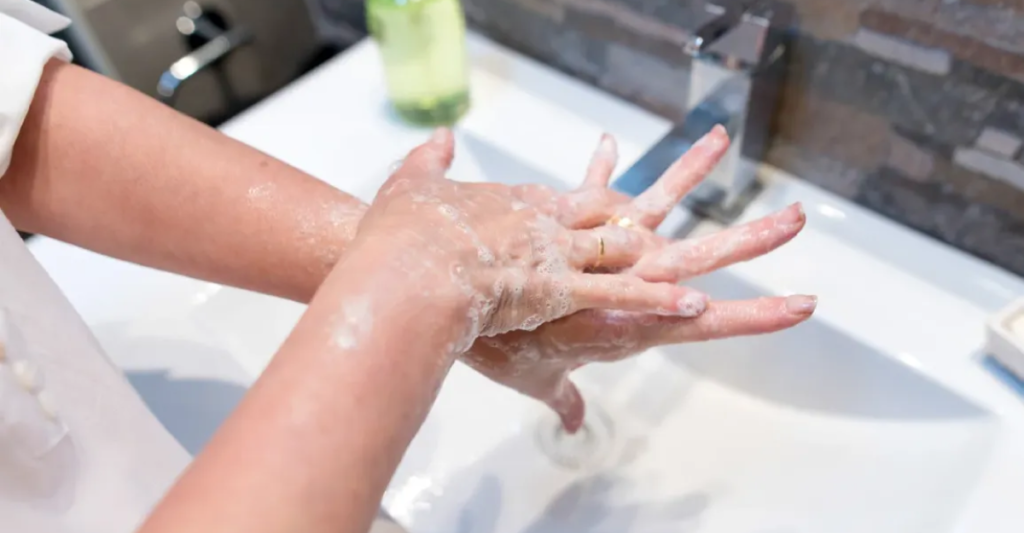“Lifestyle bloggers choose and produce material in accordance with their own habits and interests. Lifestyle blogs are therefore frequently highly customized to the author’s region, life stage, and experience.”
Eat a balanced diet.
Consume a variety of foods, such as whole grains, legumes, nuts, and fruit. Adults should consume a minimum of five pieces (400g) of fruit and vegetables per day. By always including vegetables in your meals, snacking on fresh fruit and vegetables, consuming a variety of fruits and vegetables, and consuming them in season, you can increase the amount of fruits and vegetables you consume. Your risk of malnutrition and non-communicable diseases (NCDs), such as diabetes, heart disease, stroke, and cancer, will go down if you eat healthily.
Eat less sugar and salt.
Filipinos consume twice as much sodium as is advised, which increases their risk of high blood pressure as well as heart disease and stroke. For most people, salt is their main source of sodium. Keep your daily salt intake to no more than 5g, or around 1 teaspoon. It is simpler to accomplish this by choosing low-sodium foods and by reducing the amount of salt, soy sauce, fish sauce, and other high-sodium condiments you use when cooking meals, removing salt from your dinner table, avoiding salty snacks, and removing salt from your table. Inculcate this in your lifestyle and make your health better.
Limit your consumption of bad fats
Less than 30% of your entire calorie consumption should come from fats. Unsaturated fats are preferred to saturated and trans fats among the many types of fats. WHO advises replacing saturated and trans fats with unsaturated fats and lowering saturated and trans fat intake to less than 10% of total energy intake and 1% of total energy intake, respectively.

Abstain from alcohol if you can.
There is no safe amount of alcohol consumption. Alcoholism can cause a variety of health issues, including mental and behavioral disorders, alcoholism, serious noncommunicable diseases (NCDs), such as liver cirrhosis, some malignancies, and heart conditions, as well as injuries from violent crime and traffic accidents.
Be Active
Physical activity is any skeletal muscle-driven action of the body that requires a net energy expenditure. This includes exercise and activities done while working, playing, doing duties around the house, traveling, and having fun. You may need more or less exercise depending on your age group, but those between the ages of 18 and 64 should exercise for at least 150 minutes per week at a moderate level. Increase moderate-intensity exercise to 300 minutes per week for additional health benefits.
Keep your mouth closed when you cough or sneeze.
The flu, pneumonia, and tuberculosis are just a few of the illnesses that can spread through the air. When a sick individual coughs or sneezes, infectious pathogens can be transferred to others by airborne droplets. When you start to cough or sneeze, be sure to cover your mouth with a face mask or a tissue, then properly dispose of it. Try to cover as much of your mouth with the crook (or inside) of your elbow when you cough or sneeze without a tissue available. And make your’s and your family safer and healthier.
Drink only clean water
Water-borne illnesses like cholera, diarrhea, hepatitis A, typhoid, and polio can be contracted by drinking contaminated water. At least 2 billion people throughout the world drink water that has faces in it. To be sure that the water you are consuming is safe, check with your water concessionaire and water refilling station. If you are unclear of the source of your water, boil it for at least one minute. As a result, dangerous aquatic creatures will disappear. Let it cool naturally before eating.
Maintain appropriate hand hygiene.
Everyone, not just healthcare professionals, should practise excellent hand hygiene. By keeping your hands clean, you can stop the transmission of infectious diseases. When your hands are obviously dirty, you should wash them by hand with soap and water or rub them with an alcohol-based treatment.
Cook your food properly.
More than 200 diseases, from cancer to diarrhea, are brought on by contaminated food that contains dangerous bacteria, viruses, parasites, or chemical chemicals. Check the labels or the real product before purchasing food to make sure it is safe to consume. If you are cooking, adhere to the Five Keys to Safer Food:
- Stay tidy.
- separate cooked from raw.
- Cook completely.
- Maintain safe food temperatures.
- Make use of raw materials and safe water.